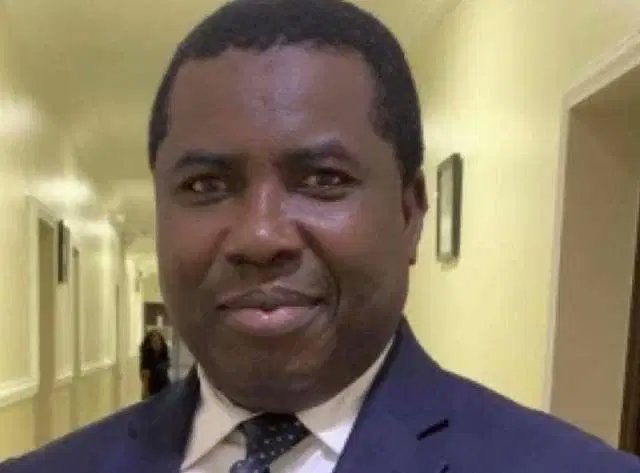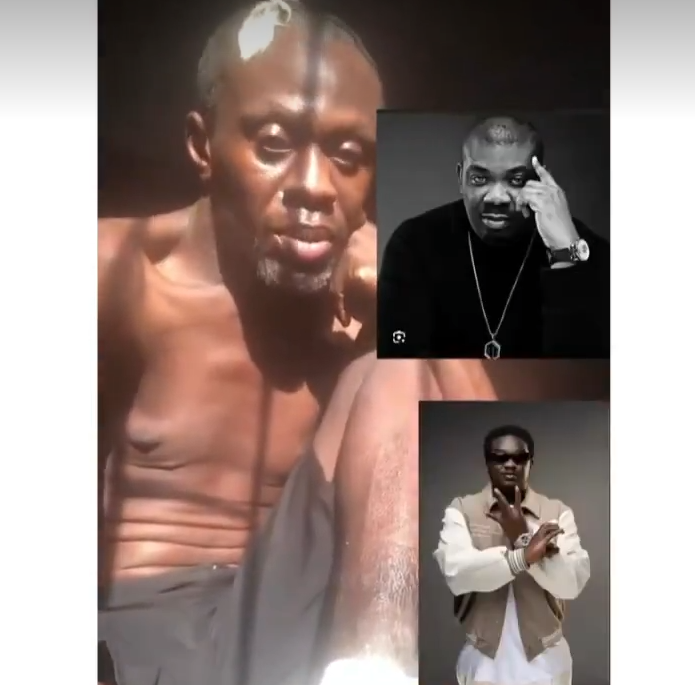
“Redeem Africa’s Largest Democracy or Bury the Corpse You Inherited” — Labour Party Fires Warning to INEC Chairman

In a dramatic escalation of its conflict with the Independent National Electoral Commission (INEC), the Labour Party (LP) has delivered a stark ultimatum to the body’s chairman, Professor Mahmood Yakubu: act now to restore Nigeria’s democratic credibility or shoulder the blame for its decay. The demand underlines mounting frustrations over what the party calls INEC’s willful disrespect of court orders, exclusion of duly nominated LP candidates, and broader erosion of the rule of law.
On August 6, 2025, amid driving rain and escalating tensions, members and supporters of the Julius Abure-led faction of the Labour Party—accompanied by civil society groups—gathered at the Commission’s Abuja headquarters to protest their exclusion from the August 16 by-elections. Placards and chants accused INEC of destroying democracy, ignoring legal directive, and selectively excluding LP candidates even when their nominations complied with INEC rules. “INEC, who is using you against LP,” read one placard. “Mahmood, stop destroying democracy in Nigeria,” said another.
The protest was more than symbolic. At its core lay a court order compelling INEC to recognise Julius Abure as the authentic National Chairman of Labour Party, and to upload the names of LP’s validly nominated candidates for the bye-elections. The party insists that INEC has failed in both respects. While other parties saw their candidate names uploaded, LP’s names were blocked, the leadership said. What LP frames as INEC’s “anomaly” is, in their words, a dangerous precedent that threatens the very foundations of Nigerian democracy.
LP publicists vigorously deny that its leadership has withdrawn or been invalidated. In a statement released around the same time, the party rejected claims that INEC had cut ties with Julius Abure, describing these as false and politically motivated. According to Obiora Ifoh, LP’s National Publicity Secretary, Abure remains the legitimate chairman, and the courts have consistently held, or dismissed certain suits, in ways that validate his leadership. The party continues to call on INEC to obey interlocutory orders—from the Nasarawa State High Court among others—that recognise Abure’s leadership pending resolution of the substantive legal battle.
For its part, INEC has maintained that it did not recognise or monitor the LP convention held in Nnewi on March 27, 2024, which is foundational to the Abure faction’s claim. The commission asserts that the convention did not comply with INEC’s constitutional requirements regarding notification and structure. Because of this, INEC reportedly declined to accept certain leadership changes or nominations emerging from that convention. LP contests these claims.
Labour Party’s sharpest rhetoric has come in the form of warnings. They say Nigeria risks losing more than just faith in its democratic institutions if INEC continues to act as it has. “Redeem Africa’s largest democracy or bury the corpse you inherited,” reads the message to the INEC chairman. Implicit in this warning is the idea that democracy, test-by-test and by-election by by-election, is being hollowed out—not by coups or obvious suppression, but through what LP describes as legalistic subterfuge, selective compliance, and institutional inertia.
Politically, the stakes could not be higher. With the general elections of 2027 looming, LP, like many opposition parties, fears that what it views as distortions today will be magnified in future polls. The party also warns that history will judge both INEC and the federal government harshly if the downward slide continues. Namely, if court orders go ignored, if internal party disputes are manipulated, and if the electoral umpire is perceived as partial or deferential to powerful political interests.
Observers see this as part of a broader crisis: internal factionalism within LP, contestations over leadership tenure, questions about INEC’s independence, and a desperate struggle to ensure electoral credibility. The Supreme Court, the Court of Appeal, Federal High Courts, and interlocutory orders are all involved, but LP argues that legal victories mean little if INEC does not enforce them in practice.
As things stand, party leaders have called on their members to remain patient but vigilant. Rather than violent confrontations, LP has emphasised peaceful protest and legal redress. Whether the protest of August 6 will force INEC to comply remains to be seen. What is clear, however, is that LP is no longer willing to accept a status quo in which judicial findings, party constitutions, and procedural fairness are discarded or undercut. They make their demands not just for themselves, but in the name of all Nigerians who expect free, fair, and credible elections.
If INEC heeds LP’s warning, the road to restoring trust in electoral institutions is steep but still navigable. If not, the party believes Nigeria may not just lose a by-election here or there—but risk losing its democratic soul. With time running out, LP’s message is simple: redemption or ruin.


